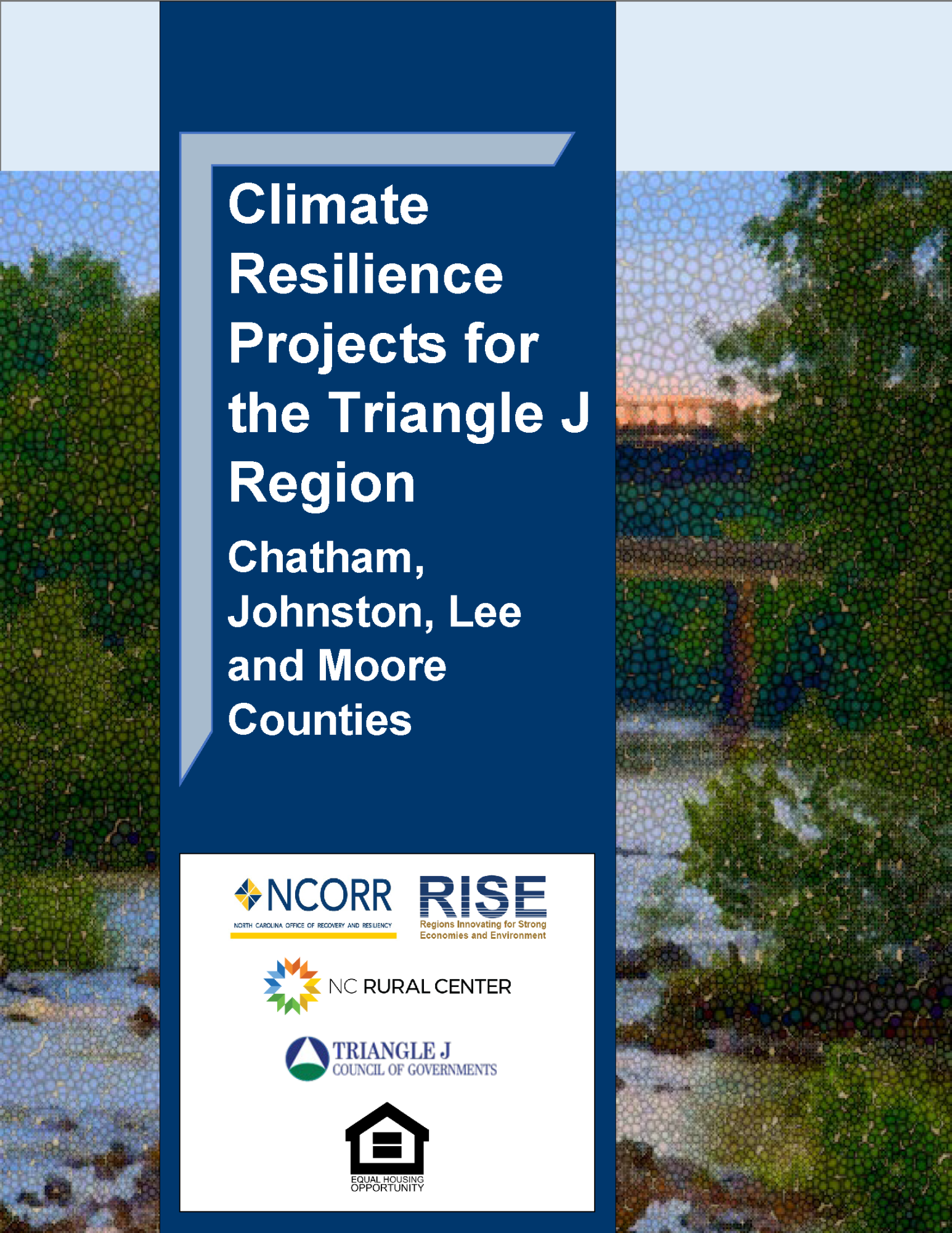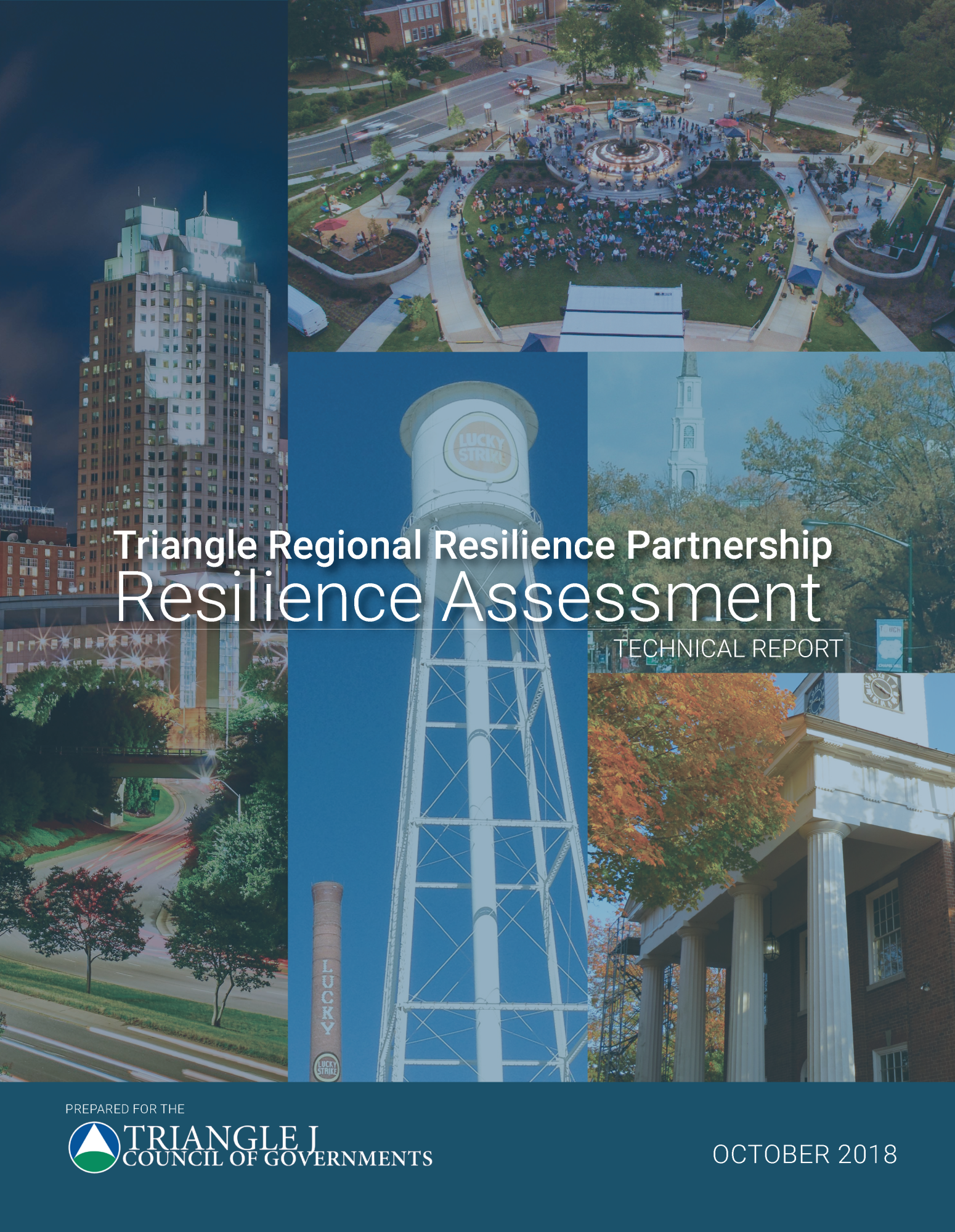Building a sustainable and resilient region by improving the efficiency and sustainability of community design and services.
CPRC is committed to protecting and preserving our region's natural environment, promoting sustainable land use and resource management, and long-term planning to help our communities adapt to our changing climate.
Regional Resilience
Resilient communities are defined by their ability to bounce back from acute disasters or long-term stressors by actively influencing and preparing for economic, social and environmental change. Yet, every community is only as resilient as its neighbors. As a top priority for our local government members and our region, CPRC is working with a network of partner organizations to make our region more resilient to changing weather patterns, economic shifts, and increasing populations.
CPRC has helped to create two regional resilience assessments for our communities, one focused on the urban counties of Durham, Orange, and Wake and one focused on the rural counties of Chatham, Johnston, Lee and Moore.
RISE Resilience Portfolio
In 2022 and 2023, CPRC worked with NCORR’s RISE Program, the NC Rural Center, and AECOM to develop a portfolio of priority projects that strengthen regional resilience for our region's rural counties - Chatham, Johnston, Lee and Moore. This multi-phase effort produced a forward-looking vulnerability assessment, the identification of five to 10 high-priority projects and a list of the actions needed to implement each proposed project.
Triangle Regional Resilience Assessment
The Triangle Regional Resilience Partnership was a joint project, completed in 2019, between four municipalities and two counties that created a regional resiliency assessment of stressors, assets and threats and prioritized recommendations for the geographic area. Administered and facilitated by CPRC, the project was a venue for organic conversation between local governments about their community resilience concerns and needs, and ultimately, produced a unified report that assessed resilience at a regional scale.
This assessment provides invaluable information for each community as they move forward with individual comprehensive plans, etc. and ensure communities with shared boundaries leverage similar strategies.
Water Resource Management
Collaboration is a key aspect of water resource management, especially in our growing region where demands on our natural resources continue to increase. CPRC works closely with local governments, water utilities, environmental organizations, and other stakeholders to develop coordinated strategies to address shared water resource quality and quantity challenges. This includes helping our members understand and comply with federal and state regulations and access funding and grants to assist with compliance.
Protecting water sources from contamination and over-extraction is crucial. Our role as facilitator and administrator for projects such as the Raleigh Watershed Protection Program are instrumental to monitor and improve water quality measures, and implement buffer zones around our water bodies.
Climate and Energy
CPRC is committed to helping communities individually and collectively reduce their greenhouse gas emissions and prepare for the effects of our changing climate by creating and implementing climate and energy action plans, hazard mitigation plans, energy-use and greenhouse gas inventories, climate vulnerability assessments, and climate resiliency plans.
Through new programs, such as our Triangle Sustainability Partnership, we are using the power of numbers to make widespread progress on our region's climate goals.

